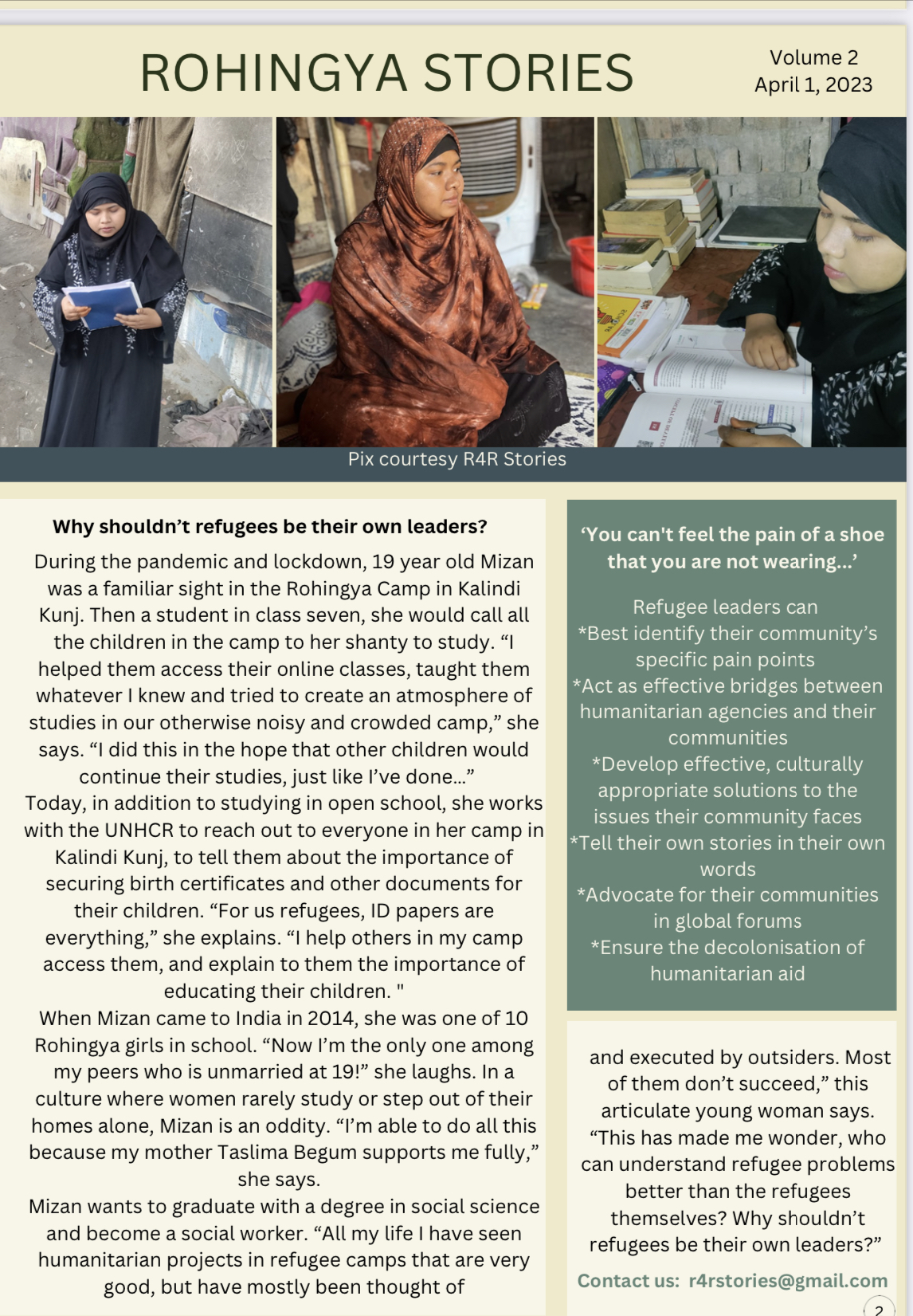A word from us...
Hi and welcome to Rohingya Stories Vol 2! It is the month of Ramadan; many in the camps are spending their time in fasting and reflection. Spring in India also brings the dreaded annual exams and we catch up with Mizan, 21, who is currently preparing for her class ten examinations. She wants to graduate, and then work for her own community. “Why shouldn’t refugees be their own leaders?” she asks, and we
couldn't agree more.
However, to do that, they have to articulate their ambitions, desires and needs. To this end, Delhi-based non-profit World Comics has trained young Rohingya boys and girls in the capital’s refugee camps to tell their own stories in the graphic form. The result? A new definition of superheroes – people trying to make the most of being in a host country which does not really accept them; people who dream of a better future, better living conditions and better opportunities; and people who want their individual voices to be heard, instead of being
clubbed together as faceless victims.
April 6 is the International Day of Sport for Development and Peace. On this occasion, we present Rohingya FC, which has helped young players like Noor Hafiz and Mohd Salim deal with the trauma of displacement. Chinlone, Myanmar's national sport, is also very popular. It reminds them of their lost
homeland, where it is traditionally, and obsessively played.
In fact, talk to any Rohingya, and you’ll get the sense of how desperately they are clinging to the vestiges of their cultural identity. Maulvi Ismail, who is one of the few Rohingya in India who can write in the newly developed Rohingya script, and is teaching it to the children in his camp. If the UNHCR were to have one Rohingya teacher in every camp, he advocates, it
would greatly enhance Rohingya pride.
By the A word from us welcome to Rohingya Stories Vol 2

